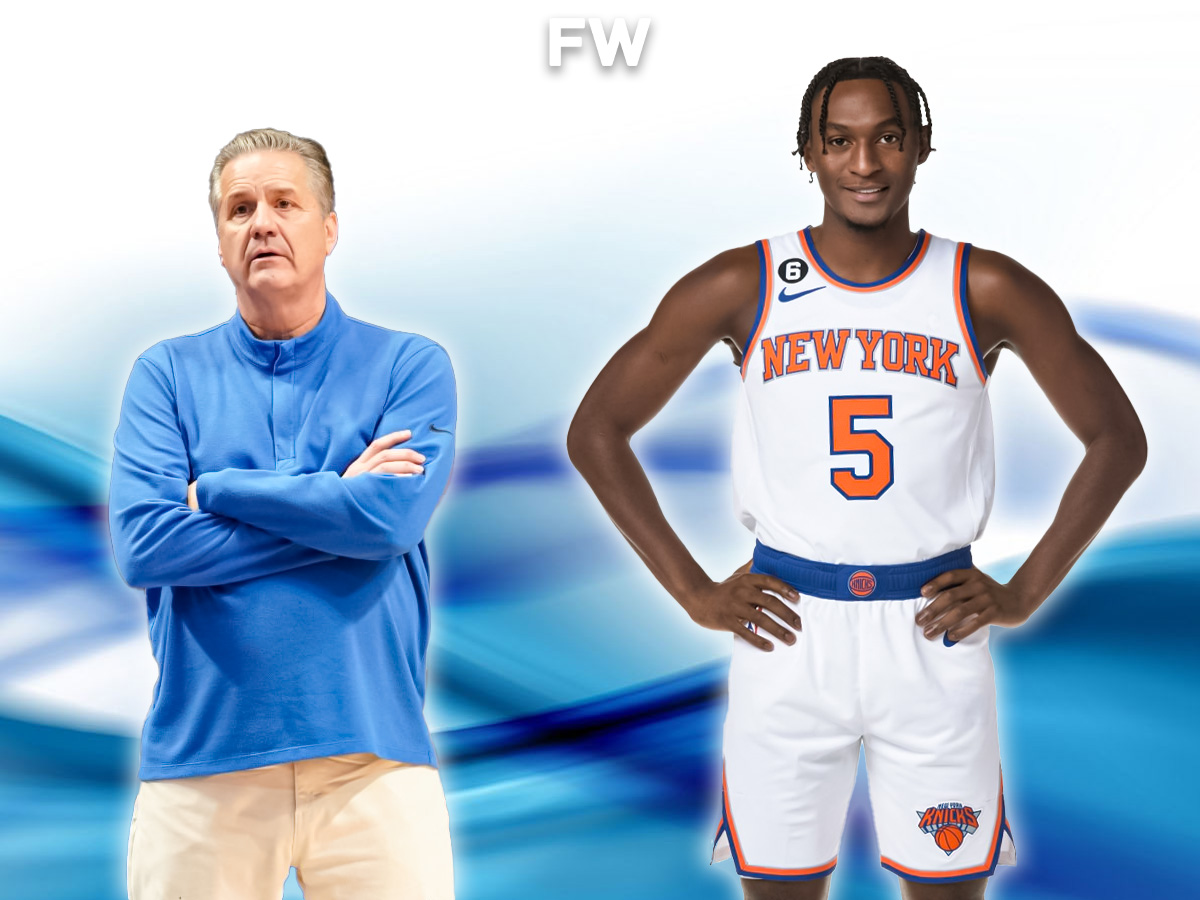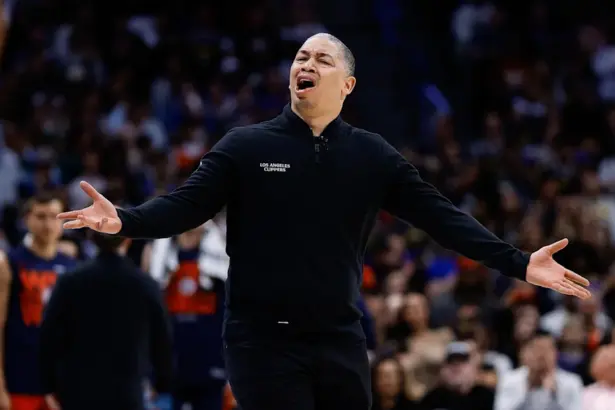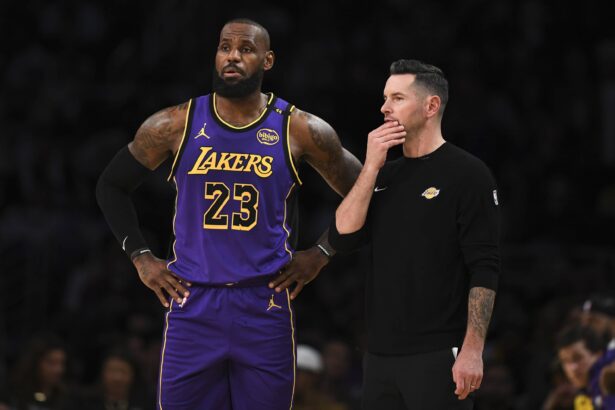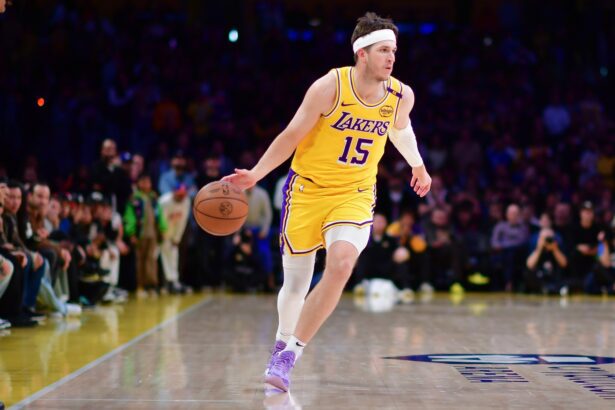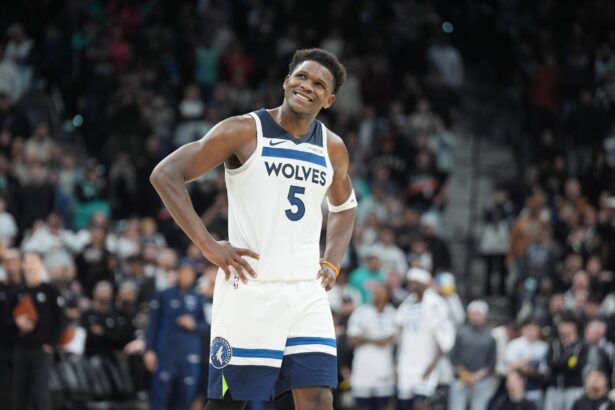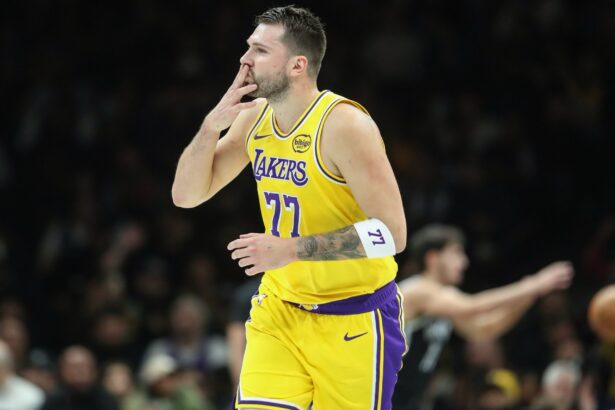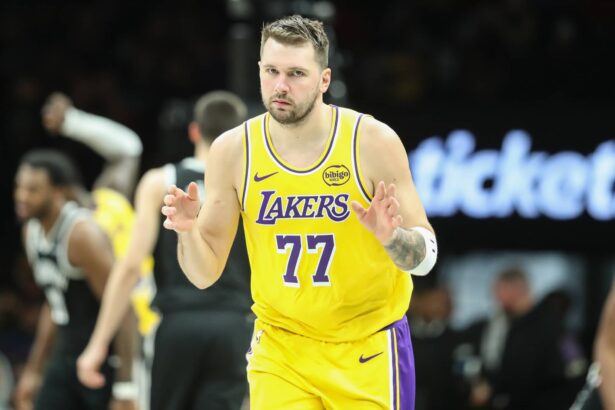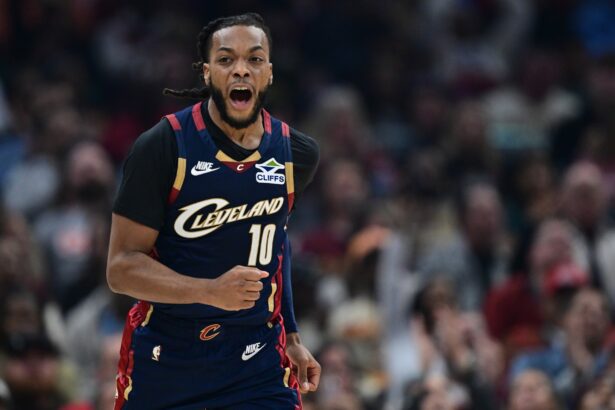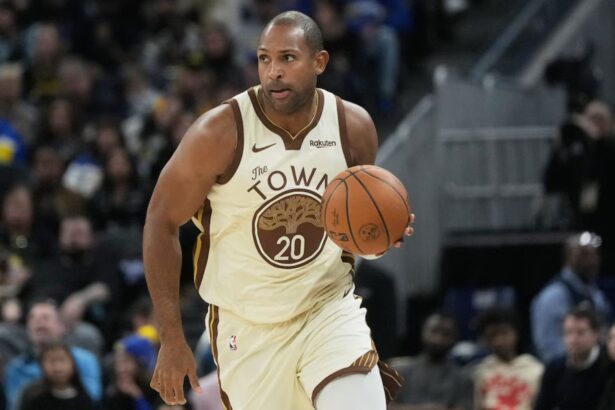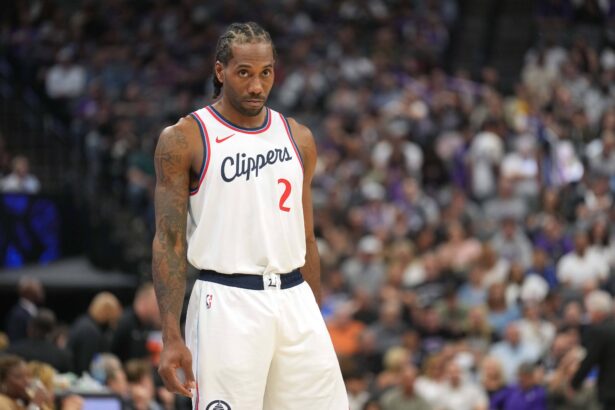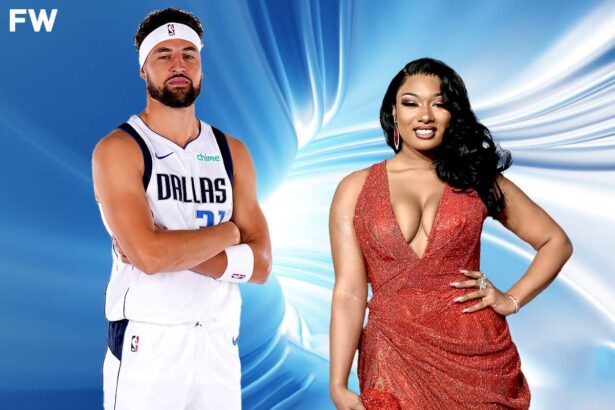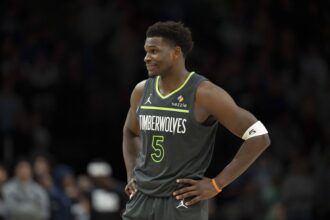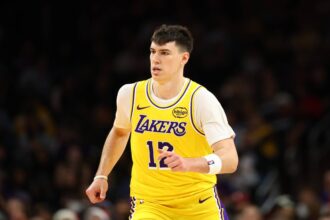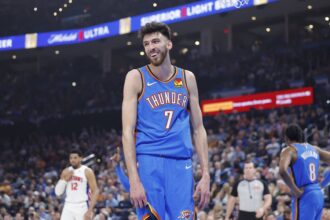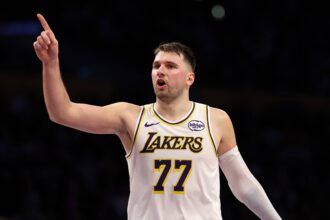- Calipari contrasts a 50-year academic window with a 4-5 year basketball timeline
- Emphasis on seizing the initial years to make an impact and secure the crucial second contract
- Calipari’s guidance reflects on why many of his players succeed in bagging second NBA contracts
In a revealing conversation back in 2017, legendary college basketball coach John Calipari painted a realistic picture of the professional basketball landscape for high school junior Immanuel Quickley. His words, rooted in experience and wisdom, underscored a fundamental truth about the world of professional sports: its transience.
“Your academic window’s 50 years. Your basketball window’s 4-5 years,” Calipari began, highlighting the contrast between the extended timeline of academic pursuits and the brisk, sometimes brutal, pace of a professional basketball career. The crux of his message was to impress upon Quickley the urgency of the moment. Those few years represent a young player’s golden opportunity not just to shine, but to secure their future in the NBA.
Calipari’s words weren’t just a commentary on the unpredictability of a sports career. They were a roadmap, a guide to maneuvering the tricky terrains of professional basketball. He emphasized that within this short window, a player needs to “do your college thing, get drafted, and establish who you are.” It’s a race against time, where every decision, every game, and every season counts.
But more profound was his insight into the dynamics of NBA contracts. “Because this first contract—it’s the second one [that matters],” Calipari stated, hinting at the true hallmark of a player’s value and longevity in the league. Landing that second contract often signifies a player’s undeniable skill and indispensable value to a team.
https://www.instagram.com/p/reel:CuF5o_gvjJH
The sagacity of Calipari’s advice is evident in the trajectory of many of his mentees. A significant number have transitioned from promising college players to NBA mainstays, landing those sought-after second contracts. As for Quickley, Calipari’s counsel was more than just words; it was a playbook for success, offering a candid look into the fleeting nature of a basketball career while emphasizing the importance of making every dribble count.
Why Is It Important For NBA Players To Build Their Future?
While the allure of the NBA often revolves around the glitz, glamour, and multi-million dollar contracts, the reality is that for many players, the limelight is fleeting. With an average NBA career lasting just 4.5 years, many players find themselves transitioning out of professional basketball far sooner than they might have envisioned. Therefore, it’s imperative for players to strategize for their post-basketball future while they’re still active in the league.
Despite the impressive salaries, the lifestyle associated with professional sports can be costly. Without prudent financial planning, some players can find themselves in challenging financial situations shortly after their playing days conclude. Beyond financial security, there’s also the matter of personal fulfillment and purpose. The transition from being an elite athlete to finding a new career can be daunting and can lead to feelings of aimlessness or loss of identity.
By investing wisely, seeking education, building networks outside of basketball, and cultivating passions and skills beyond the court, players can ensure that they not only maintain their financial stability but also continue to lead purposeful and fulfilling lives. In a profession where the spotlight can be short-lived, it’s crucial for NBA players to remember that life extends far beyond the final buzzer, making it essential to plan for a future that can sustain them for decades to come.
Some Players End Up Becoming Business Moguls While Some Become Broke
The NBA has seen a plethora of players, each with their distinct career trajectories, not only on the court but also in their post-basketball lives. Players like Michael Jordan, Kobe Bryant, Shaquille O’Neal, and LeBron James have seamlessly transitioned from being basketball legends to business moguls.
Michael Jordan, with his Jordan Brand under Nike and after selling the ownership stake in the Charlotte Hornets, has become a multi-billionaire. Kobe Bryant ventured into storytelling, and investment, and even won an Oscar for his short film. Shaquille O’Neal’s business ventures range from restaurants to real estate, and his magnetic personality has made him a staple in media. LeBron James has diversified his portfolio with investments in Blaze Pizza, his production company SpringHill Entertainment, and more.
However, not every player finds much success off the court. Delonte West, despite earning millions during his NBA career, faced personal and financial struggles post-retirement. His struggles with mental health and subsequent financial challenges are a stark reminder that financial stability and life success post-NBA aren’t guaranteed.
While the basketball court can be a great equalizer, the real challenge for many is navigating life after the applause fades. The contrasting fortunes of these players underscore the importance of financial literacy, planning, and personal well-being.
We sincerely appreciate and respect you as a reader of our site. It would help us a lot if you follow us on Google News because of the latest update.
Thanks for following us. We really appreciate your support.

